How AI in Drug Development is Transforming the Industry?
Drug development is one field with a lot of promise since it will gain from developments in the application of AI to forecast cellular disease processes, protein folding, and molecular interactions. However, there are several barriers to the successful application of AI in drug development and research, including poor model performance brought on by shortcut learning and nondiverse training data.
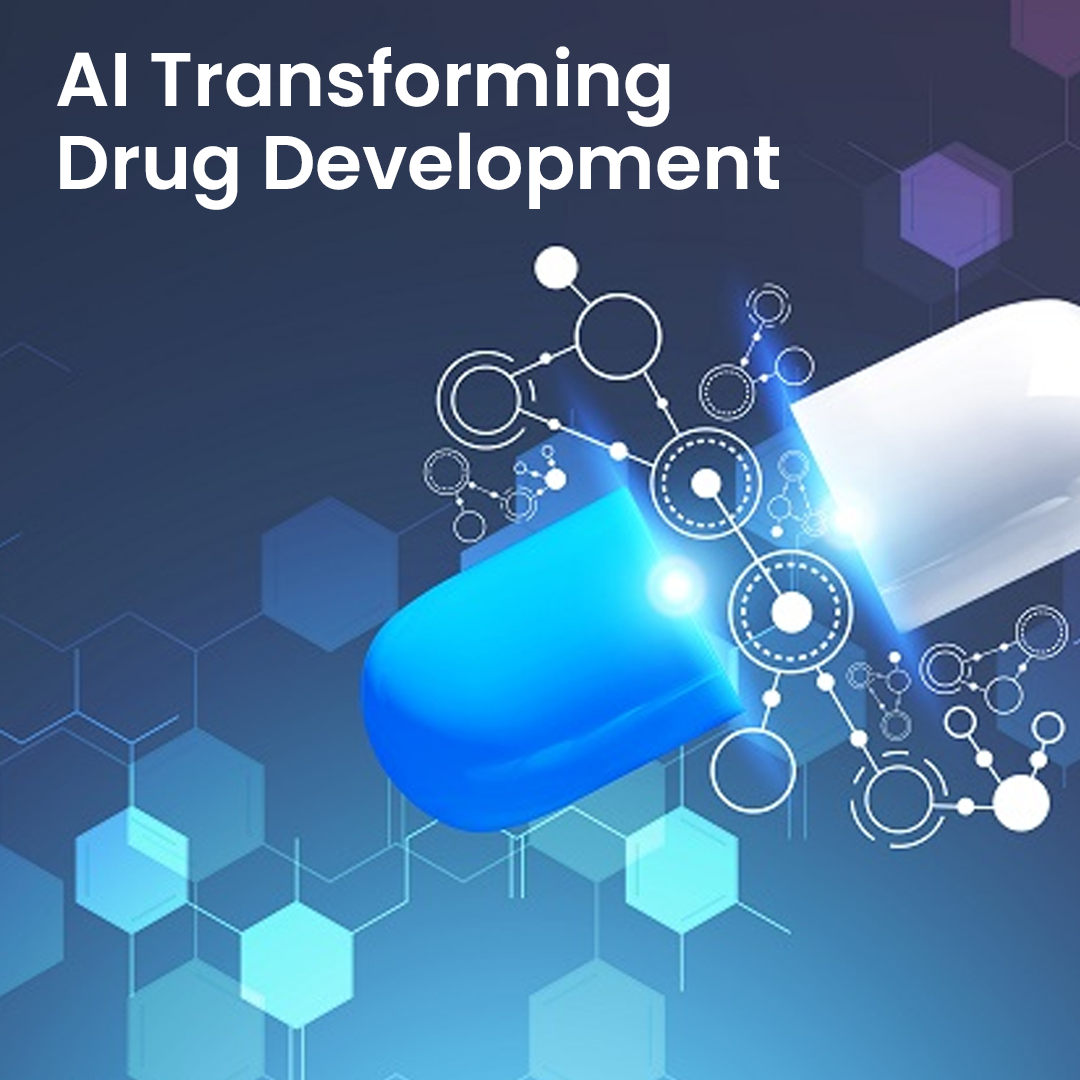
Overcome Data Complexity in Drug Development with Our AI Software Development Services Tailored to Accelerate Innovation
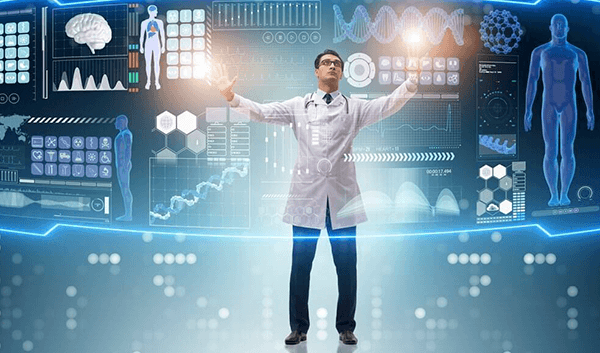
“Artificial intelligence could help scientists develop better medicines faster—thus improving millions of people’s lives. But for that to happen, companies will need to change the way they work.”- Mckinsey
Drug Development’s Costly Path
A novel pharmaceutical medication goes through a protracted, costly, and labor-intensive process from molecule to medicine. Each year, thousands of intriguing molecules are created in labs, but only a small percentage make it through the complicated process to clinical trials, where success is still not assured. Approximately 88% of medications in the US that enter clinical trials fail to advance and receive approval. Navigating a maze of chemical combinations and selecting the most promising compounds that accomplish the desired function while averting unanticipated toxicities and unfavorable side effects are essential for successful drug development.
- By identifying and mitigating these problems, researchers can create safer and more effective medicines more quickly, because of artificial intelligence with sufficient data and computer capacity.
- Sometimes, nevertheless, there is insufficient or no data or analysis available to create medicine compounds that work, especially for ailments like cancer, Alzheimer’s disease, and other diseases that were previously incurable.
- Therapies for less frequent or more difficult diseases, as well as those that disproportionately affect poorer populations, are discouraged from being sought due to the difficulty, cost, and low success rates of new medication development.
Benefits of AI in Drug Development or Discovery
It is often known that the process of finding and developing new medications is quite expensive. As previously mentioned, a new drug’s development can take anywhere from 9.5 to 14 years on average and cost up to $2.6 billion. Furthermore, very few of the medications that are developed reach the market.
- Large volumes of biological and chemical data can be analyzed by artificial intelligence applications to swiftly find promising drug candidates, forecast their safety and efficacy, and optimize their design. This means that a new drug candidate’s discovery phase can be shortened to an average of just seven months. This helps patients receive innovative therapies more quickly in addition to cutting expenses and increasing efficiency.
- Furthermore, these apps can promptly pinpoint additional uses for medications that have previously received regulatory approval from organizations like the FDA in the United States. This makes the process of repurposing a medication to treat different ailments faster and less expensive.
Accelerate Time-To-Market by Solving Drug Development Bottlenecks Through Our Custom AI-Driven Services
7 Ways How AI is Revolutionizing Drug Development
By examining huge databases of molecular structures, biological interactions, and clinical trial data, AI algorithms help researchers find promising drug candidates in drug discovery and development. This holds the potential for a quicker creation of novel drugs by speeding up the drug discovery process. AI in drug development or discovery suggests:
 1. Accelerating Clinical Trials
1. Accelerating Clinical Trials
Clinical trials are being revolutionized by AI, in the areas of trial design and patient recruitment. Employing AI, businesses can examine EHRs to find qualified applicants more quickly. Furthermore, AI systems can optimize trial protocols and forecast the best dosage and therapy course. In the upcoming years, artificial intelligence will play a bigger part in adaptive trial designs. These designs enable trial adjustments depending on interim results as the trial moves along, which can significantly reduce the trial’s time. This has a considerable influence and ranks second.
Reducing the number of years needed for drug development can be achieved by streamlining patient recruitment and trial design; however, due to the complexity of clinical trials, some manual oversight will still be required.
2. Target Identification & Validation
To identify potential drug targets, it is necessary to analyze genomic, proteomic, and metabolomic data. This process entails identifying potential biological targets and clarifying their roles in diseases. It then involves validating these targets to make sure they are directly involved in a disease mechanism and that modulating the target is likely to have a therapeutic effect. ML algorithms provide researchers with important insights for medication development by sorting through massive datasets to identify the proteins or biological processes linked to disorders.
AI in drug discovery or development helps with target selection as well. Druggable, safe, effective, and able to meet business needs are the qualities of an ideal target. However, formerly unreachable targets are now part of developing disease therapy techniques. Because it ensures that a molecular target is directly implicated in a disease mechanism and that target modulation is likely to have a therapeutic impact, target validation is an essential step in the drug discovery process. Target validation could include figuring out the structure-activity relationship, genetically modifying target genes (knockdown or overexpression), creating a drug-resistant mutant of the putative target, predicting the target’s effects with degradation-based tools, and keeping an eye on the signaling pathways that the putative target is downstream of.
3. Prediction of Drug Properties
Drug candidates’ physicochemical characteristics, such as their solubility, bioavailability, and toxicity, can be predicted using AI algorithms. Concentrating on compounds with a higher possibility of success helps optimize drug development by cutting costs and time. By leveraging a library of well-known chemicals, machine learning algorithms can be trained to anticipate the attributes of drugs. These algorithms are trained to identify trends and connections between a compound’s physicochemical characteristics and its chemical structure. Early in the drug development process, these models can help by predicting the physicochemical features of novel, untested compounds once they have been trained. For example, ML models have been applied to forecast solubility, an essential characteristic of potential drugs.
Similarly, bioavailability—another crucial characteristic for treatment candidates—has been predicted using machine learning algorithms. Another area where AI has shown promise is toxicity prediction. Based on their chemical structures, ML models have been used to forecast a compound’s potential for toxicity. By highlighting substances that are less likely to be harmful, these models can aid in the initial stages of drug discovery and lower the possibility of human injury during testing.
4. Processes Genomic Data
Large volumes of data, particularly proteomics and genomics data, can be processed by AI-powered algorithms to find medication candidates. Data from proteomics and genomics can offer important new perspectives on the fundamental causes of illness and possible therapeutic targets. The capacity of AI-powered algorithms to quickly handle and evaluate vast amounts of data is one of its main benefits. This can include data from proteomics, which provides information about the proteins found in cells and tissues, and genomics, which provides information about a person’s DNA.
AI systems predict the efficacy of various medication candidates and find possible therapeutic targets by evaluating this data. This can increase the likelihood of success in clinical trials and drastically cut down on the time and expense needed to develop new medications.
Read Our Success Story to Learn About
5. Drug Dosage Optimization
Artificial intelligence can improve medication dosages based on unique patient features, enhancing treatment success. One-way artificial intelligence is transforming the healthcare sector by customizing medication dosages according to the unique characteristics of each patient. With more individualized treatment plans made possible by this method, unpleasant responses are decreased, and efficacy is increased.
Traditional approaches to dosing medication are often based on general population averages, which can lead to over- or under-dosing for individual patients. AI can analyze copious amounts of patient data, including medical history, genetic information, and physiological characteristics, to create personalized dosing plans for each patient.
6. Pre-Clinical Testing
With AI’s ability to mimic the effects of medications on the body, researchers can test medications before putting them through clinical trials. Because AI makes it possible for researchers to mimic the effects of medications on the body, the field of drug discovery is undergoing rapid transformation. This stage of the drug development process is crucial because it enables scientists to test medications and forecast their effectiveness as well as any possible negative effects before investing in expensive and time-consuming clinical trials.
Utilizing AI for drug simulations has several benefits, one of which is its capacity to process enormous volumes of data and generate fully accurate predictions. Together with data from other sources like proteomics and genomes, this also contains data from therapeutic studies. Artificial intelligence algorithms can model the effects of medications on the body and forecast the interactions between various drugs and particular targets by analyzing this data.
7. Identifying Potential Side Effects
AI can also assist in identifying drug adverse effects, which helps researchers create safer medication formulations. Because AI makes it possible for researchers to find possible adverse effects of medications before they are evaluated in clinical trials, drug discovery is being revolutionized. This makes it possible to create safer medications and lowers the possibility of side effects, which can have a serious negative influence on patient health and the time it takes to develop new therapies.
AI can detect side effects, for example, by analyzing vast volumes of data from many sources, such as literature, clinical trials, and electronic health records. Predictive models that can detect side effects and unfavorable reactions are constructed using this data. AI systems are also capable of analyzing proteomic and genomic data to find dangers linked to certain drug-target interactions.
Navigate Regulatory Challenges In AI-Driven Drug Discovery with Our Expert Clinical Decision Support Systems Software Services
Future Prospects & Trends of AI in Drug Development
With several trends and developments in store, the use of AI in drug development appears to have a bright future.
- The blending of AI with other innovative technologies, such as nanotechnology and genomics, is one trend. These technologies, when combined with AI, allow researchers to better understand the causes underlying disease and create more specialized and efficient treatments.
- The use of AI to repurpose drugs is another development. Rather than beginning from scratch, researchers can utilize AI algorithms to assess existing medications and uncover potential innovative uses. The proven safety profiles of these medications can curtail the duration and expenses linked with drug development.
- Moreover, AI is becoming increasingly popular in adaptive clinical trials and real-time monitoring. Artificial intelligence algorithms can detect early markers of therapy success or failure by continuously evaluating patient data throughout clinical trials. This data can be utilized to lower trial costs, enhance patient results, and alter treatment methods.
- Furthermore, smaller pharmaceutical businesses and research institutes are finding AI to be more accessible due to the democratization of AI tools and technology.
In conclusion, AI has a promising future in the creation and development of pharmaceuticals. Technological developments, the democratization of AI tools, and the integration of AI with other innovative disciplines are expected to spur innovation and enhance patient outcomes. AI will have a revolutionary effect on the pharmaceutical sector as it develops further.
Stay Competitive in Your Industry with NextGen Invent
Artificial intelligence is transforming industries across the board, and drug discovery is no exception. AI has the potential to revolutionize the development of new therapies by accelerating the drug discovery process, improving accuracy, and uncovering insights that were previously inaccessible. With its ability to analyze vast datasets and perform complex computational modeling, AI is becoming an essential tool in modern drug development, significantly reducing both time and cost.
Despite its immense promise, several challenges remain for AI to fully realize its potential in drug discovery. One major challenge is the need for high-quality, comprehensive data, as drug discovery involves complex biological processes that require accurate and diverse datasets. Additionally, navigating the regulatory landscape and ensuring that AI-driven discoveries meet ethical standards is critical, including securing approval from regulatory authorities and evaluating the impact of AI-derived drugs on patient safety. Researchers are actively working to overcome these barriers, and the role of AI in drug discovery is expected to expand in the coming years.
At NextGen Invent, we understand that success in healthcare innovation requires the right expertise and technology.
As a leading artificial Intelligence software development services company, we specialize in building advanced clinical decision support system software solutions tailored to meet your specific needs, ensuring improved decision-making, and streamlined workflows in drug discovery and beyond.
Partner with us and leverage our AI-powered solutions to gain a competitive edge in your field. Reach out today to explore how we can support your journey toward innovation.
Frequently Asked Questions About AI in Drug Development
Related Blogs
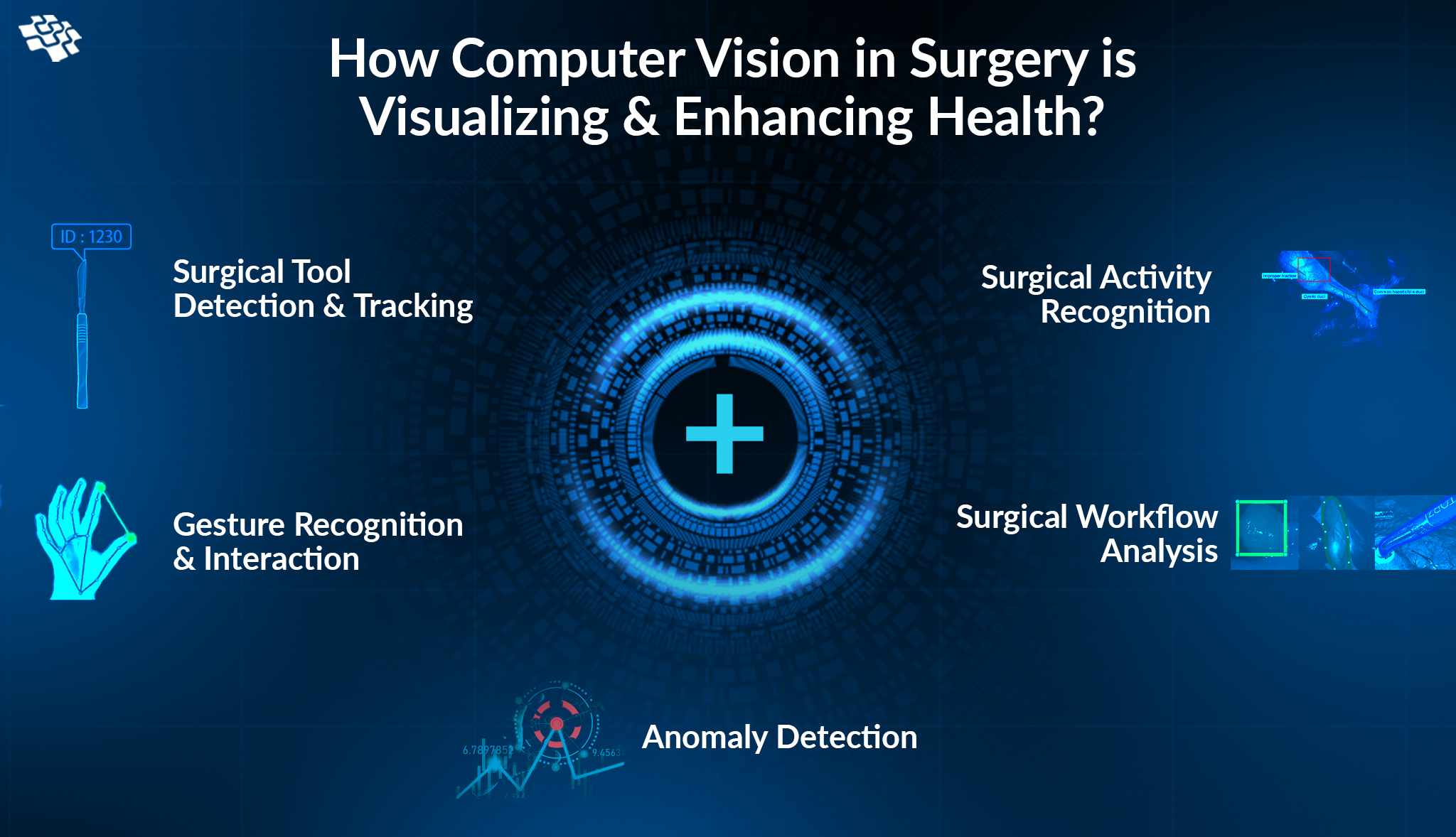
Visualizing Health with the Power of CV in Surgery!
Computer vision in surgery leverages fiber optic cameras and robots as essential tools for surgeries, especially in the era of minimally invasive procedures. These instruments, coupled with computer vision algorithms employing artificial intelligence...
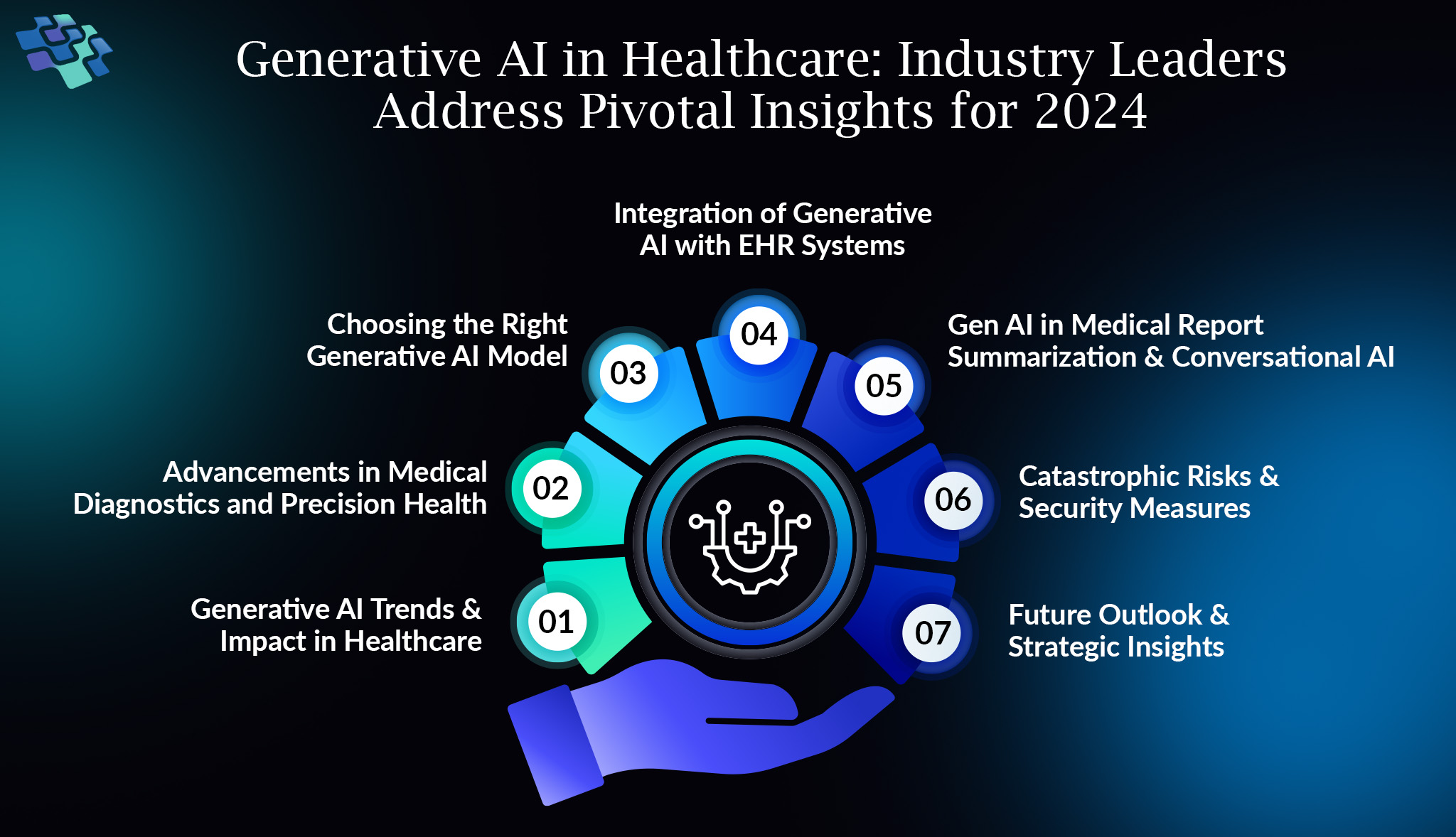
Generative AI in Healthcare: Reshaping Health Dynamics
Deepak Mittal, CEO and Founder of NextGen Invent, and Partha Anbil, Advisor at NextGen Invent, conducted an insightful interview on the transformative impact of Generative AI in healthcare for 2024. Partha is a long-time Life Sciences...
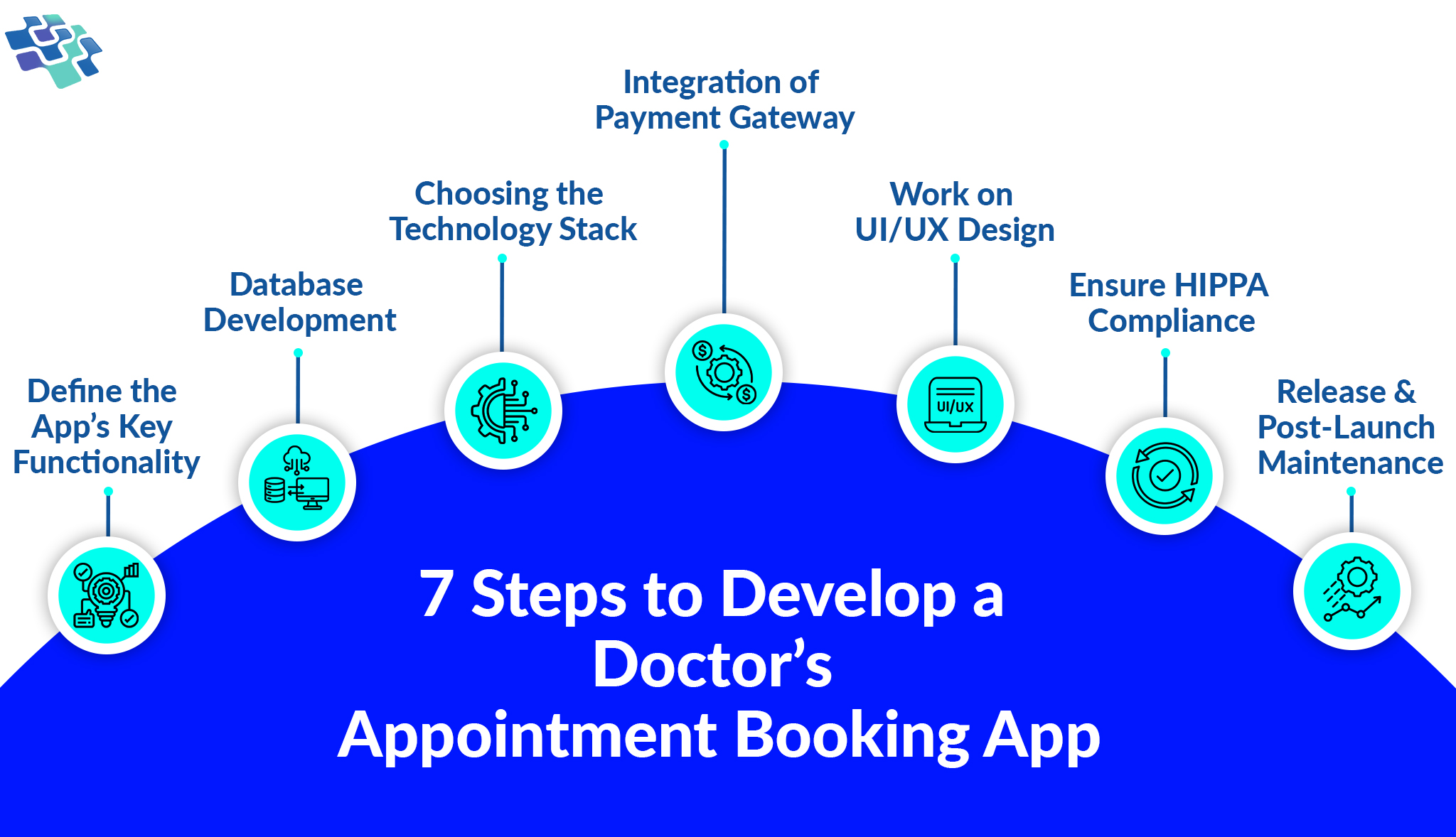
How to Develop a Doctor Appointment App in 2024?
By the end of 2024, the US market for online medical consultations is projected to generate $5.06 billion in revenue. From 2024 to 2028, this is anticipated to expand at a 4.44% annual pace, with a market size of $6.02 billion.
Stay In the Know
Get Latest updates and industry insights every month.
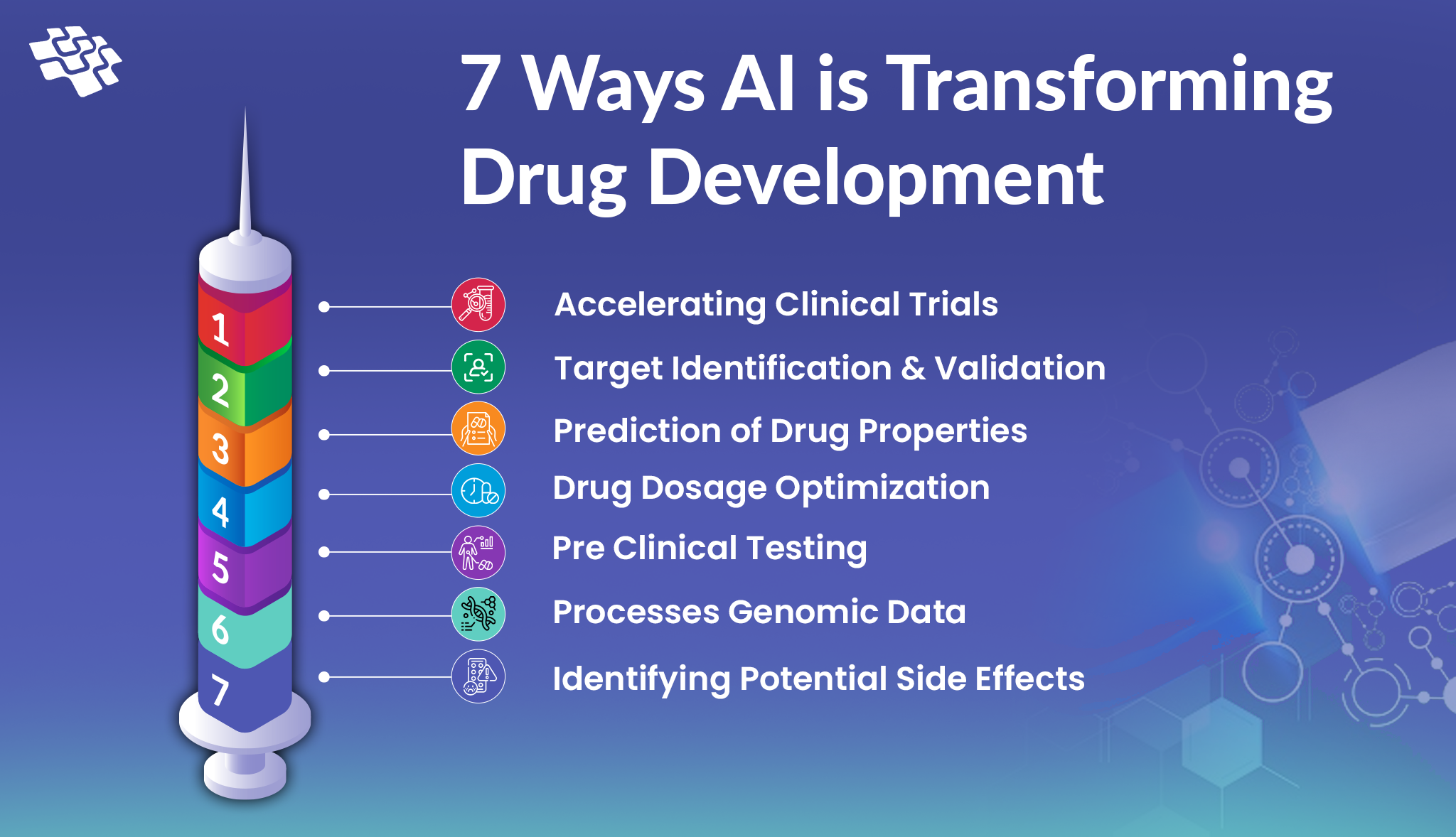 1. Accelerating Clinical Trials
1. Accelerating Clinical Trials